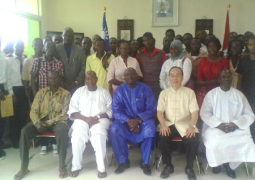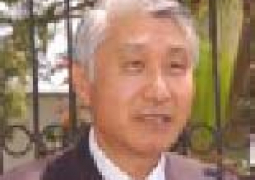Political leaders from 42 countries around the world have called upon the United Nations General Assembly to adopt a resolution banning female genital mutilation worldwide.
The call was made through an international appeal published recently in the International Herald Tribune.
Among the numerous prominent personalities who have signed the communiqué calling for the ban of FGM are Chantal Compaoré, First Lady of Burkina Faso; Mariana Mane Sanha, First Lady of Guinea Bissau; Janet Kataha Museveni, First Lady of Uganda; Chantal De Souza Yayi, First Lady of Benin; Clio Napoletano, First Lady of Italy; Moushira Mahmoud Khattab, Minister of State for Family and Population, Egypt; Raid Fahmi, Minister of Science and Technology, Iraq; Hicham El Tall, Minister of Justice, Jordan; Naha Mint Mouknass, Minister of Foreign Affairs, Mauritania; Mariam Lamizana, President of the Inter-African Committee on Traditional Practices affecting the Health of Women and Children (IAC); Emma Bonino, Vice-President of the Senate and founder of NPWJ, Italy; the Nobel laureates Nadime Gordimer; Desmond Tutu; Shirin Ebadi and Marty Ahtisaari, as well as parliamentarians, political leaders and civil society activists from countries concerned by the practice of FGM.
This Appeal has been launched by the international NGO - No Peace Without Justice (NPWJ), the Inter-African Committee on Traditional Practices Affecting the Health of Women and Children (IAC), the European Network for the Prevention and Eradication of Harmful Traditional Practices (EuroNet FGM) and the Senegalese association “La Palabre”, in the framework of a campaign aiming at promoting the adoption by the 65th Session of the United Nations General Assembly of a Resolution to ban female genital mutilation worldwide, and by doing so to strengthen this decisive battle for human rights worldwide.
The FGM Programme Coordinator of NPWJ, Alvilda Jablonko, declares: “A United Nations General Assembly resolution to ban FGM worldwide would step up and signal the international community’s universal condemnation of this blatant human rights violation, with important implications worldwide. It would serve to strengthen laws that currently ban FGM and provide new impetus for those nations that currently do not have such laws on the books.”
A United Nations resolution would contribute significantly to a global change in the perception of FGM as a clear human rights violation against millions of women around the world, instead of making it merely as a cultural, religious or public health issue, NPWJ press release says.
“This is a shift that women’s rights advocates have tenaciously pushed for over the past two decades. The time has now come for us to join all the brave activists who have dedicated their lives to this issue and demand that the United Nations take responsibility and finally take the steps to put an end to this widespread and systematic form of violence committed against women and girls, in violation of their fundamental right to physical and personal integrity,” says Ms Jablonko



